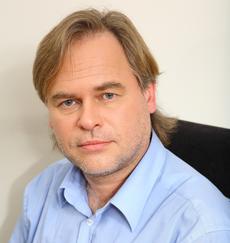

Cloud technology can be harnessed to make it less profitable – or at least less lucrative – to develop and distribute run-of-the-mill malware, Eugene Kaspersky, the CEO of Moscow-based Kaspersky Lab, told eWEEK.
If developers are forced to add sophisticated features to develop malware that cannot be easily thwarted, it also raises the bar on who can enter the malware business.
Of the more than 20 million pieces of malware detected by Kaspersky Lab every year, a significant portion of them are considered “typical”. They are often created using readily available tool kits or just re-skinned versions of existing malware.
Right now, writing malware is not only technically simple but also low risk because national law enforcement agencies are not well-prepared to catch international criminals overseas. A change in the landscape that would require more technical know-how to operate a criminal enterprise online would weed out a lot of the low-level criminals, Kaspersky said.
Designing sophisticated malware is difficult and is possible only for “a genius”, Kaspersky said, noting that “teenagers can’t develop this kind of [sophisticated] malware”.
Building on a theme he introduced at the Infosecurity Europe event in late April, Kaspersky said cyber-criminals are primarily motivated by money. If they see profits decline in a certain type of attack, they switch to a more profitable line, he added.
For example, malware designed to steal resources and money from online games used to be common a few years ago, according to Kaspersky. However, with the glut of stolen goods on the black market, thieves are making less money.
The average prices criminals can get for characters and artifacts from online games declined by about two-thirds between 2008 and 2010, Kaspersky said. Over the same time period, the number of malware samples targeting game fraud dropped by nearly 60 percent.
When profit declines, malware of that type also decreases, according to Kaspersky. A recent Cisco report agreed with Kaspersky’s assessment, finding that cyber-criminals were abandoning large-scale mass spam operations in favour of low-volume targeted attacks with bigger financial rewards. Highlights from the report include the following:
“I have some ideas to make the cyber-crime business much less profitable,” said Kaspersky. His grand vision revolves around global cloud-based threat detection and monitoring networks operated by major security vendors, including Kaspersky Lab, Symantec, McAfee and Trend Micro, among others.
Continued on page 2
Page: 1 2
All Cybertrucks manufactured between November 2023 and February 2025 recalled over trim that can fall…
As Musk guts US federal agencies, SEC issues summons over Elon's failure to disclose ownership…
Moonshot project Taara spun out of Google, uses lasers and not satellites to provide internet…
Pebble creator launches two new PebbleOS-based smartwatches with 30-day battery life, e-ink screens after OS…
Amazon loses appeal in Luxembourg's administrative court over 746m euro GDPR fine related to use…
Nvidia, xAI to participate in project backed by BlackRock, Microsoft to invest $100bn in AI…